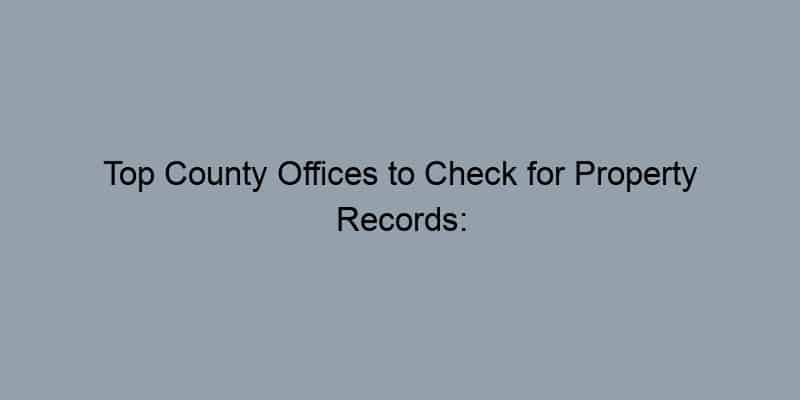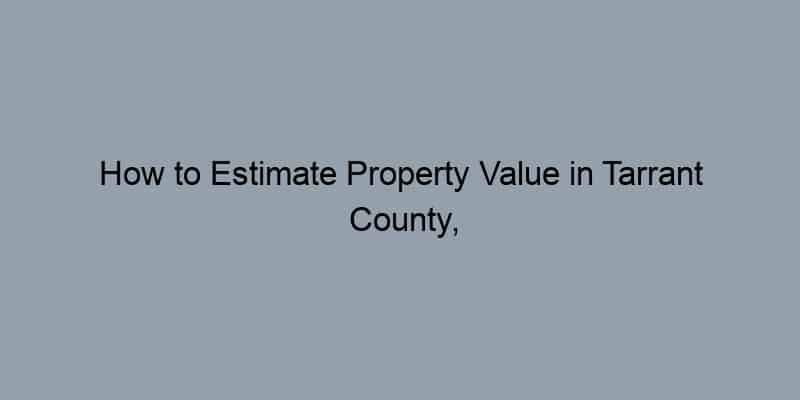Understanding your home’s market value isn’t just important when you’re ready to sell—it’s a crucial part of responsible homeownership. Regularly checking your home’s value can provide financial clarity, help you make smarter decisions, and ultimately safeguard your largest investment.
In this blog, we’ll explore the benefits of staying informed about your home’s current market value, how often you should evaluate it, and the best tools to use.
What Is Your Home’s Market Value?
Home market value refers to the estimated amount a buyer would be willing to pay for your property under current market conditions. This figure fluctuates due to factors such as:
- Local real estate trends
- Economic conditions
- Neighborhood developments
- Property improvements or degradation
Knowing this value is essential—not just for potential sellers, but for anyone looking to refinance, invest, or manage their long-term financial health.
Why It’s Important To Monitor Your Home’s Market Value
1. Stay Informed About Your Financial Standing
Your home is likely one of your most valuable assets. Keeping track of its estimated home value allows you to:
- Accurately assess your net worth
- Plan for future investments
- Understand your position in the housing market
Whether you’re eyeing a second property or preparing for retirement, this insight can help you strategize effectively.
2. Make Better Mortgage And Refinance Decisions
Many homeowners miss out on refinance opportunities because they’re unaware of their home’s current worth. If your home has appreciated significantly, you could:
- Qualify for better loan terms
- Reduce your monthly mortgage payments
- Access equity for renovations, education, or emergencies
A regular home value check ensures you’re not leaving money on the table.
3. Evaluate Home Equity Accurately
Home equity is the difference between your property’s market value and the amount you owe on your mortgage. Knowing this can influence decisions like:
- Applying for a home equity line of credit (HELOC)
- Taking out a second mortgage
- Planning large purchases or financial moves
By keeping tabs on your home equity, you’ll always have a realistic view of your borrowing power.
4. Identify The Right Time To Sell
Market timing can dramatically affect your selling price. Monitoring your home’s value helps you recognize when the market is in your favor. You’ll be equipped to:
- List your property when it’s most profitable
- Respond to favorable local market shifts
- Set a realistic asking price based on trends
5. Understand The Impact Of Renovations
Have you recently upgraded your kitchen or installed solar panels? These improvements can significantly influence your home’s market value. By checking post-renovation property estimates, you can:
- Measure ROI on your renovations
- Use the new valuation for refinancing
- Justify your pricing when selling
How Often Should You Check Your Home’s Value?
While there’s no one-size-fits-all answer, a good rule of thumb is to check your property’s value:
- Annually, for general financial planning
- Before and after major renovations
- When interest rates drop
- When neighborhood developments occur (new schools, shopping centers, etc.)
- If you’re considering refinancing or borrowing against equity
Staying proactive can save you money—and even make you money—in the long run.
Best Tools To Check Your Home’s Market Value
There are several reliable tools and services that can help you estimate your home’s value:
1. Online Home Value Estimators
Websites like Zillow’s Zestimate and Redfin Estimate provide instant market value calculations based on public data, recent sales, and proprietary algorithms.
2. Local Real Estate Agents
A professional real estate agent can provide a comparative market analysis (CMA) tailored to your specific property and location. This analysis includes recent sales, listing data, and property conditions to deliver a more accurate valuation.
3. Professional Appraisals
If you need an official value—for refinancing or legal purposes—a licensed home appraiser can assess your property. Though this comes with a fee, it offers the most precise value based on in-depth criteria.
4. County Property Records
Local property tax assessors also publish assessed values which may not be exact market value but provide useful baselines for tracking changes over time.
What Factors Affect Your Home’s Value?
When checking your home’s value, keep in mind that multiple variables influence the outcome:
- Location and neighborhood trends
- Comparable recent sales (comps)
- Home size and condition
- Age of the home
- Upgrades and renovations
- Curb appeal and landscaping
- Market demand and interest rates
Understanding these factors gives context to your valuation and may help guide decisions on upgrades or selling.
Potential Risks Of Ignoring Your Home’s Value
Failing to stay on top of your property’s market worth could lead to:
- Missed refinancing opportunities
- Underestimating or overestimating home equity
- Inaccurate insurance coverage
- Poor financial planning for retirement or relocation
In short, it’s not just about knowing the number—it’s about staying financially prepared.
Final Thoughts: Make Market Value Tracking A Habit
In today’s dynamic real estate environment, information is power. By regularly checking your home’s market value, you’re better equipped to:
- Make smarter financial decisions
- Capitalize on opportunities
- Safeguard your most significant investment
At Official Property Records, we are committed to providing accurate, up-to-date, and reliable property record information to individuals, real estate professionals, and businesses. Our platform offers seamless access to essential property details, including ownership history, legal records, and market trends, helping users make informed decisions. By leveraging advanced technology and trusted sources, we ensure transparency and efficiency in property data retrieval. Whether you’re a homeowner, buyer, investor, or industry professional, our goal is to simplify the process of obtaining verified property records, making research and decision-making easier and more accessible.
Don’t wait for a sale or refinance to discover your home’s worth—stay ahead of the curve with routine assessments.
Call To Action: Stay Informed, Stay Empowered
Take control of your financial future today. Use a free home value estimator, connect with a trusted real estate agent, or schedule a professional appraisal to get a clear view of your home’s current worth. Regularly tracking your home’s market value is one of the smartest moves any homeowner can make.

















